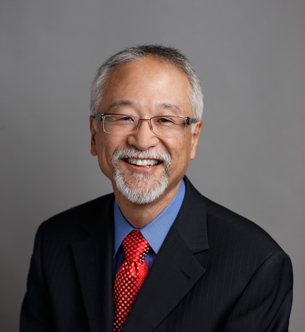College of Pharmacists of British Columbia
2013/2014
Annual Report

2013/2014

All statistical information, Board and committee member listings reported in this 2013/14 Annual Report are as of fiscal year end
February 28, 2014.
Vision — Better health through excellence in pharmacy.
Mission — The College regulates the pharmacy profession in the public interest. We set and enforce standards and promote best practices for the delivery of pharmacy care in British Columbia.
Values — The College of Pharmacists of British Columbia’s activities and decisions are based on the following values:

A culture
of excellence

Providing
quality
service

Building
quality
relationships

Being
professional
and ethical

Goal 1: Public Expectations
The public's expectations of pharmacists and pharmacy technicians have changed a lot over the years. To ensure that the public is receiving the highest quality care possible, the College will provide pharmacists and pharmacy technicians opportunities to work together to build a common understanding of their roles, skills and abilities. An innovative public awareness and engagement campaign will roll out in year three to share this common understanding with the public.

Goal 2: Interdisciplinary Relationships
Strong relationships between healthcare professionals can have a very positive impact on the quality of care that patients receive. With this in mind, the College will investigate opportunities to support pharmacists and pharmacy technicians to build relationships with other healthcare professionals. In addition, we will seek ways to improve the relationships between pharmacists and pharmacy technicians to enhance the quality of patient care.

Goal 3: Scope of Practice
Over the last few years, the needs of the public have changed, so the College must grow and evolve to ensure that pharmacists and pharmacy technicians are meeting those needs. Over the next three years, the College will propose changes to the current scope of practice, including: integrating pharmacy technicians into community practice; introducing legislation to allow access to patient laboratory data; and removing restrictions and conditions that impact the ability to deliver safe, effective care. Better support will be provided to pharmacists and pharmacy technicians to practice to their current scope through educational opportunities and enhanced communications.

Goal 4: Standards
To meet the changing needs of the public, the College will review and update standards. Changes to standards will be introduced in many areas, including: pharmacy workload; continuing education requirements; pharmacy site inspections; and practice review systems. Pharmacists and pharmacy technicians are healthcare professionals bound to a Code of Ethics; our College will strengthen that commitment by prohibiting the sale of tobacco products in premises where a pharmacy is located, and prohibit the use of loyalty programs related to the provision of pharmacy services.

Goal 5: Technology
All professions face the challenge of effectively integrating new technologies into practice, and pharmacy is no different. The College aims to develop and utilize emerging technologies that improve the quality of pharmacy care. Technologies such as the next generation of PharmaNet (PNet) will provide a more comprehensive patient drug history to healthcare professionals and assist pharmacists and pharmacy technicians in making the best decisions for their patients.
November 22, 2014
Marriott Pinnacle Hotel
1128 W Hastings Street, Vancouver, BC
Doug Kipp: Chair
District 4 – Kootenay/Okanagan
Blair Tymchuk
District 3 – Vancouver Island/Coastal
Aleisha Thornhill
District 7 – Community Hospitals
Ryan Hoag
Government Appointee
Bev Harris: Vice-Chair
District 2 – Fraser Valley
Robert Craigue
District 5 – Northern British Columbia
Bal Dhillon
District 8 – Pharmacy Technicians
Jeremy Walden
Government Appointee
Agnes Fridl Poljak
District 1 – Metropolitan Vancouver
Anar Dossa
District 6 – Urban Hospitals
Kris Gustavson
Government Appointee
George Walton
Government Appointee
College Launches Quality of Pharmacy Services to Optimize Patient Outcomes.
The College's three-year strategic plan was a result of almost a year of dedicated efforts from the Board and College staff.
The plan, approved by the Board in November 2013, features five
focus areas:
1 — Public Expectations
2 — Interdisciplinary Relationships
3 — Scope of Practice
4 — Standards
5 — Technology
Each of the five focus areas contains key projects and initiatives which will roll out over the next three years that will advance pharmacy practice and keep pace with the speed of industry change. Pharmacy professionals, members of the public and other healthcare stakeholders were able to offer input and helped shape the plan. Their participation and feedback is greatly appreciated and is reflected in the plan. For more information on the College's three-year strategic plan, please visit http://www.qualitypharmacy.ca.
On December 2, 2013, the college introduced new bylaws which prohibited the provision of incentives for prescription drugs and pharmacy services.
These bylaws were approved unanimously by the Board in September 2013 as it remains committed to regulating safe and effective pharmacy care practices.
Considerable thought, effort and time was spent by the College Board and staff with regards to these bylaws. A public posting for feedback brought over 15,000 responses to the College, which the Board reviewed prior to approving the bylaws. They were then filed with and accepted by the Ministry of Health, and communicated to pharmacy owners, managers and directors well in advance of its December 2, 2013 enforcement.
The bylaws were contested and are being brought to the B.C. Supreme Court for a full hearing. The College stands behind the bylaws and maintains that they were created in the best interest of public safety.
The College recently implemented a reduced fee schedule for pharmacies, pharmacy professionals, and students.
All fees were approved for filing at the September 20, 2013 Board meeting, and the changes were implemented shortly thereafter. Annual fees for pharmacists were lowered to $530, pharmacy technician fees were lowered to $353 and the annual licensing fee for pharmacies was restricted into a single fee of $1,331, rather than multiple smaller payments. Student fees were eliminated.
On February 1, 2014, the standard concentration of methadone changed from 1mg/ml to 10mg/ml in British Columbia.
Given the high risks associated with methadone maintenance treatment, the College partnered with the Ministry of Health and the College of Physicians and Surgeons to ensure that all healthcare professionals and the public were clear about the change in concentration.
The College launched a public awareness campaign to share the important facts about the new methadone formula. Videos, posters and frequently asked questions were created so that healthcare professionals and the public knew what to expect.
Its red colouring and cherry flavour makes Methadose™ look, smell and taste quite different than the previously dispensed compounded methadone, but it is the concentration that is most important to remember. “Think before you drink” was used as a slogan in order to remind everyone that the new formula is 10 times stronger.
The College has been working tirelessly on the new Practice Review Program (PRP), under the direction of the Board.
This program is set to elaborate on existing pharmacy inspection processes and replace the current Knowledge Assessment exam. The new PRP will evaluate pharmacy professionals - including pharmacy technicians for the first time – as they apply their knowledge, skills, and abilities in their own practice setting. The PRP will first be launched in community pharmacies in Spring 2015, with expansion into hospital pharmacies and other practice settings later in 2015.
As defined in its 3-year strategic plan, the College is committed to increasing engagement opportunities with pharmacy professionals, external healthcare stakeholders, and the public. In the past year, the College collaborated with these group in an unprecedented way:
PPP-66 Methadone Maintenance Treatment Free Live
Training Session
The February 1, 2014, transition from the former 1mg/ml concentration of methadone to the new, stronger 10mg/ml concentration had significant potential for risk. In order to mitigate potential risk and ensure that safe and effective pharmacy care was delivered during and after the transition, College staff delivered 23 community training sessions across the province. This major initiative was a success as no incidence reports were reported during the transition to the 10 times stronger formula.
Practice Review Program Feedback Forums and Online
Engagement Initiative
In mid-December, the College sent out an email inviting pharmacy professionals to respond to questions regarding the Practice Review Program, and how it might be applied to their practice. 1,500 pharmacy professionals participated in the online initiative. In addition, the College hosted two feedback forums with pharmacy managers and the committee members in community pharmacy practice to discuss responses and the progress of the program.

It is my privilege to present this report on behalf of the Board.
I would like to welcome our new Board members Aleisha Thornhill (District 7 - Community Hospitals) and George Walton (government appointee).
The College recently delivered its three-year strategic plan, “Quality of Pharmacy Services to Optimize Patient Outcomes” which incorporated feedback gathered from pharmacists and pharmacy technicians right across the province, as well as members of the public. I would like to thank all those who provided their feedback, and I look forward to seeing the impact this plan will have on the lives of our patients.
One of the biggest initiatives of the past year was the work done to make the transition away from the Knowledge Assessment Exam to a new Practice Review Program (PRP). We are confident that the move to a review of actual practice in real time will benefit not just patients, but the pharmacy profession itself. This project has, and will continue to demand significant time and resources across the College, but we are confident that this program will pay dividends in the form of better patient outcomes that result from even higher quality care.
I am also excited to announce that the fee reductions introduced by the Board at the September 20, 2013 meeting, is now in effect. This is a significant reduction as the new schedule streamlines annual fees for pharmacies into a single payment, reduces annual registration fees for pharmacists and technicians, and eliminates student fees altogether! All of this has been accomplished while we simultaneously investing in our own profession, strategically supporting a number of projects designed to enhance the quality of pharmacy care in BC.
There is still, however, work to be done in the name of promoting public health. As previously stated, British Columbia is the last Canadian jurisdiction still selling tobacco in premises that contain pharmacies. I am proud to acknowledge the work being done on this front, and we look forward to introducing and sharing it with all of our stakeholders soon.
I would like to thank the Board and staff for their commitment in governing the pharmacy profession and serving the public who count on us over the last year.

Doug Kipp, Chair

This year was a productive and important year for the College. Led by a dynamic and action-oriented Board, we have a long list of significant accomplishments to report.
For years, the Knowledge Assessment was the cornerstone of our Professional Development and Assessment Program (PDAP). It served the College well in meeting our mandate of ensuring that competent pharmacists provide safe and effective pharmacy care to the public. It is now time to move forward with an assessment of pharmacy practice that goes beyond pharmaceutical knowledge to its application in the real world. This is a bold and significant move.
The Board approved grants to support a number of important research initiatives, as well as educational opportunities for pharmacists. In total, 88 pharmacists undertook the ADAPT program of clinical skills development, supported by the College. Feedback indicates that the program provided great hands-on experience that increased a pharmacist’s degree of comfort when delivering clinical services to their patients.
Given our positive financial position, the College implemented the Board-approved reduced fee schedule. Pharmacists now have a reduced annual fee of $530, pharmacy technicians have a reduced rate of $353, and the annual pharmacy fee was restructured into a single fee of $1,331.
We registered 500 new pharmacists, 341 new pharmacy technicians and 75 new pharmacies in 2013.
On December 2, 2013, the bylaw prohibiting the provision of incentives in return for prescriptions and pharmacy services came into effect. This bylaw was approved unanimously by the Board; they are passionate about its need. The bylaw is currently being challenged in the B.C. Supreme Court but we are confident that it will be upheld.
The Board also approved a new three-year strategic plan which incorporated feedback from engagement sessions across the province with over 700 pharmacists and pharmacy technicians, as well as members of the public. This ambitious plan focuses on quality services for patients.
It is an honour and a privilege to serve as Registrar of the College.

Bob Nakagawa, Registrar
The College of Pharmacists of BC is the regulatory body for the pharmacy profession, and is responsible for the registration of pharmacy professionals and licensing of pharmacies throughout British Columbia.
The College receives its authority from the government of BC through the Health Professions Act (HPA) and the Pharmacy Operations and Drug Scheduling Act (PODSA).
The Board of the College is the elected and appointed body that leads the organization. In fiscal year 2013/2014, the Board consisted of seven elected pharmacists, one elected pharmacy technician and four government appointees.
The Board governs the College to ensure that it efficiently and effectively fulfills its legislative mandate, mission and vision. As leaders, the Board also ensures that the College is accountable to the general public for competent, conscientious and effective pharmacy practice.
In addition to the College Registrar and staff, the Board utilizes a number of committees which consist mostly of College registrants with some public representation. These committees work to achieve its identified goals and objectives, and report annually to the Board via their Chair. Excerpts of committee reports have been incorporated throughout this annual report.
Prior to taking office, all elected and appointed Board members must take and sign an Oath of Office acknowledging their understanding and commitment to the College’s duty to serve and protect the public.
Oath of Office
Mandate
To provide recommendations to the Board relating to the annual audit, auditor’s report and governance oversight of the financial management of the College.
Membership
Doug Kipp (chair)
Bev Harris (vice-chair)
Bob Nakagawa (registrar)
Mike Stonefield (staff resource)
Ryan Hoag
Blair Tymchuk
Number of Meetings: 4
Mandate
To provide recommendations to the Board and the Registrar on matters relating to the Code of Ethics, Conflict of Interest Standards and any related policies or guidelines.
Membership
Frank Archer (chair)
Robyn Miyata (vice-chair)
Suzanne Solven (staff resource)
Cristina Alarcon
Bashir Jiwani
Berny Leung
Robin Manweiler
Nafisa Merali
Omar Saad
Number of Meetings: 0
Onsite monitoring of practice is an essential method to ensure safe and effective pharmacy practice.
The College’s team of Inspectors/Practice Consultants conduct routine, random site visits of community and hospital pharmacies across British Columbia, and inspect all new, renovated and/or relocated pharmacies to meet licensure standards. Site visits ensure that minimum practice standards are being met, and allow for the identification, documentation and reconciliation of any areas that may require improvement.
In addition to routine, random site visits, College Investigators visit specific pharmacies in response to circumstances identified through the complaints resolution process. Site visits triggered by a complaint focus on evidence gathering with respect to an individual’s specific concerns; all findings are brought forward to the College’s Inquiry Committee for review.

> March 1, 2013 to February 28, 2014
Community pharmacy
Routine – regular
Routine – facility services
Consultation – on site
Consultation – telephone
Facility site
Follow-up
Methadone services
New pharmacy opening
Investigation
Robbery
138
1
9
5
2
2
35
59
79
50
> March 1, 2013 to February 28, 2014
Hospital pharmacy
Opening
Routine
Consultation – on site
Consultation – telephone
1
20
3
1
Mandate
To provide recommendations to the Board on matters relating to community pharmacy practice.
Membership
Amy Huang (chair)
Salima Wali (vice-chair)
Dr. George Budd (staff resource)
Sukhjit Bains
Cassandra Elstak-Blackwell
Fady Moussa
Dinah Purewal
Elijah Ssemaluulu
Number of Meetings: 1
Mandate
To provide recommendations to the Board on matters relating to hospital pharmacy practice issues.
Membership
Keith McDonald (chair)
Anita Lo (vice-chair)
Jonathan Lau (staff resource)
Josh Batterink
Jerry Casanova
Lily Cheng
Yvonne Dresen
Cam Egli (staff resource)
Gordon Harper
Anca Jelescu Bodos
Shelley Novak
Fruzsina Pataky
Dawn Robb
Number of Meetings: 2
Mandate
To provide recommendations to the Board on matters relating to residential care pharmacy practice issues.
Membership
Carol Hansen (chair)
Douglas Danforth (vice-chair)
Sharon Kerr (staff resource)
Rapinder Chahal
Christopher Kooner
Anna Kownacki
Wendy Letoria
Joyce Quon
Maria Ton
Number of Meetings: 0
To become a practising pharmacist or pharmacy technician in British Columbia, individuals must be ‘registered’ with the College. Similarly, all pharmacies operating in the province must be ‘licensed’ by the College.
The initial registration process ensures that only pharmacy professionals who successfully meet the ‘entry to practice’ standards and demonstrate the necessary knowledge, skills and abilities to provide safe and effective pharmacy services may practice. All registrants must continue to meet the College’s requirements with respect to professional development and continuing education, which are tied to annual registration renewal, to ensure their ongoing competence throughout practice.
The College is responsible for maintaining an accurate register which identifies qualified pharmacy professionals as well as licensed pharmacies in BC. The College must also publicly share any registrant or pharmacy limits, conditions, suspensions or cancellations. The register and any notifications with regards to penalties are available on the College website.
Registrants are also required to consent to a criminal record check and to carry professional liability insurance as a condition of their registration.
Regulated Pharmacy Technicians
The College registered its first pharmacy technicians in 2011-12 and the number of registered pharmacy technicians continues to increase. As a result, a new healthcare professional and new registrant of the College was created. Regulated pharmacy technicians are directly responsible and accountable for an expanded scope of technical functions related to prescription preparation and processing.
This has been one of the most significant initiatives facing the pharmacy profession today; it shifts the work in the areas of prescription processing and preparation from the pharmacist to the pharmacy technician, allowing pharmacists more time for their evolving role in clinical care activities.
Mandatory Criminal Record Check
The criminal record check is a requirement of the Criminal Records Review Act and is intended to help protect children and vulnerable adults from physical, sexual or financial abuse. All healthcare practitioners under the Health Professions Act (HPA) must consent to a criminal record check at least once every five years regardless of whether or not they work directly with children or vulnerable adults.
Consent to a criminal record check is mandatory. Should a registrant refuse to consent or fail a criminal record check, the College would forward that case to the Inquiry Committee. Should a pharmacy professional that is not yet registered with the College refuse consent or fail a criminal record check, the application would go to the Registration Committee for review.
Mandatory Liability Insurance
All practising pharmacy professionals must possess professional liability insurance with the following minimum criteria:
Injection Authority
In July 2009, pharmacists received the ability to become authorized to administer injections. The Pharmacists Regulation allows for qualified and authorized pharmacists to administer a drug (Schedule I, IA or II) or substance (Schedule III) by intradermal, intramuscular or subcutaneous injection for the prevention of disease, disorders or conditions and for the treatment of anaphylaxis once authorized.
In the fall of 2013, changes to the HPA bylaws enabled pharmacy students to also apply for the authority to administer injections.

Mandate
To ensure registrants are qualified to practice.
Membership
Raymond Jang (chair)
Jeff Slater (vice-chair)
Doreen Leong (staff resource)
Shakeel Bhatti
Laura Bickerton
Ashley Foreman
Yonette Harrod
Phuong Hoang
Charles Park
Nathan Roeters
Wayne Rubner
Joy Sisson
Lorna Tina
Jeremy Walden
Number of Meetings: 5
Mandate
To ensure that the Jurisprudence Examination continues as a valid and reliable assessment instrument.
Membership
Salima Wali (chair)
Maria Ton (vice-chair)
Sharon Kerr (staff resource)
Gianni DelNegro
Stephanie Hahn
Kathleen Keelan
Fatima Ladha
Hesham Metwaly
Soroush Rabiei
Roberta Walker
Number of Meetings: 4
Number of Blueprint Meetings for Pharmacy Technicians: 1
Number of JE sittings:
3 (pharmacists)
3 (pharmacy technicians)
Mandate
To develop, review and recommend the standards, limits and conditions under which a registrant may administer a drug or substance to patients and to maintain patient safety and public protection with respect to authorized pharmacist’s administration of injections to patients.
Membership
Cameron Zaremba (chair)
Omar Alasaly (vice-chair)
Doreen Leong (staff resource)
Elizabeth Brodkin
Jagpaul Deol
Aileen Mira
Mitch Moneo
Chris Salgado
Number of Meetings: 1
Licensed Pharmacies
2013/14
2012/13
> Community
Beginning of year
1143
1118
Add: Opening
Add: Change of category
Less: Closings
Less: Change of category
75
1
-17
–
60
–
-45
–
Fiscal year end
1202
1133 *
> Hospital
Beginning of year
69
68
Add: Opening
Less: Closings
–
–
2
–1
Fiscal year end
69
69
> Education
Beginning of year
8
2
Add: Opening
Less: Closings
Less: Change of category
–
–
-1
6
–
–
Fiscal year end
7
8
> Satellite
Beginning of year
3
3
Add: Opening
Less: Closings
–
-1
–
–
Fiscal year end
2
3
> Telepharmacy
Beginning of year
13
12
Add: Opening
Less: Closings
–
–
1
–
Fiscal year end
13
13
Pharmacist Pre-registration
2013/14
2012/13
> Category (# of new applicants)
AIT
63
54
New Grad/Non-AIT
IPG/USA
AIT-REIN
Fiscal year end total (# of new applicants)
Fiscal year end total (pharmacists pre-registered)
28
474
9
574
627
15
284
–
353
–
Full Pharmacists Registration
2013/14
2012/13
Beginning of year
5202
5017
Add: New registrants
Add: Reinstate
Less: Transfer to Former
Less: Transfer to Non-Practising
Less: Deceased
Less: Suspended (by Complaints Resolution)
Less: Terminated (by Complaints Resolution)
Fiscal year end total
500
26
-273
-15
-4
-1
-1
5434
390
35
-224
-3
-2
-5
–
5208 *
Non-practicing Pharmacists Registration
2013/14
2012/13
Beginning of year
55
60
Add: Transfer from Full
Add: Reinstate (from Former)
Less: Reinstate to Full Pharmacist
Less: Transfer to Former (voluntary or >90 days late)
Less: Deceased
Less: Suspended (by Complaints Resolution)
Less: Terminated (by Complaints Resolution)
Fiscal year end total
16
–
-4
-14
–
-1
–
52
3
1
-1
-13
–
–
–
50 *
Limited Pharmacists Registration
2013/14
2012/13
Beginning of year
0
1
Add: New applicants
Less: Registered as Full Pharmacist
Fiscal year end total
–
–
0
–
-1
0
UBC Student Pharmacists Registration
2013/14
2012/13
Year 1
225
226
Year 2
Year 3
Year 4
Post UBC
Fiscal year end total
229
212
145
2
813
218
151
144
2
741
Student (Non-UBC) Pharmacists Registration
2013/14
2012/13
Fiscal year end total
14
10
Pharmacy Technician Pre-registration
2013/14
2012/13
> Category (# of new applicants)
AIT
7
–
New Grad
Current Technicians
Fiscal year end total (# of new applicants)
Fiscal year end total (pharmacy technicians pre-registered)
101
210
318
1179
90
287
377
–
Pharmacy Technician Registration
2013/14
2012/13
Beginning of year
325
61
Add: New registrants
Add: Reinstate
Less: Transfer to Former
Less: Transfer to Non-Practising
Less: Deceased
Less: Suspended (by Complaints Resolution)
Less: Terminated (by Complaints Resolution)
Fiscal year end total
341
1
-6
–
–
–
–
661
265
–
-1
–
–
–
–
325
Authorized to Administer Injections
2013/14
2012/13
Pharmacists
2891
2196
UBC Students (4th year)
Fiscal year end total
90
2981
54
2250
* Note: Due to change in reporting statistics based on payment date, there are variances between previous fiscal year end count and current fiscal year begin count
The College’s Professional Development and Assessment Program (PDAP) is critical for the College to meet its mandate to provide safe and effective pharmacy care.
PDAP has two components which are mandatory for all registered pharmacy professionals: Continuing Education and Assessment.
Over the past year, there have been major changes to the Assessment component of PDAP. These changes were directed by the Board in order for the College to keep current with advances in technology and quality assurance measures.
Previously, all pharmacists were required to complete a Knowledge Assessment exam, which would be administered once every 10 years. This multiple-choice test would assess knowledge, skills, and abilities but was unable to assess its practical application.
Beginning March 2015, pharmacy professionals – including pharmacy technicians for the first time – will be assessed in their actual practice setting at least once every six years. These individual reviews will measure compliance of Board-approved focus areas, which reflect current practice standards as outlined in legislation.
The mandatory Continuing Education component of PDAP remains unchanged, with all registered pharmacy professionals having to take a minimum of 15 hours of continuing education each year, which corresponds with their annual renewal process.

Mandate
To ensure that registrants are competent to practise and to promote high practice standards amongst registrants.
Membership
Robert Craigue (chair)
Agnes Fridl Poljak (vice-chair)
Ashifa Keshavji (staff resource)
Karen Callaway
Kris Gustavson
Harpreet Khtaria
John Scholtens
Lorna Tina
Barry Wilson
Number of Meetings: 6
Mandate
To ensure that the Professional Development and Assessment Program’s Knowledge Assessment option continues as a valid and reliable assessment.
Membership
Under advisement of the Quality Assurance Committee
Number of Meetings: 0
Mandate
To ensure that the Professional Development and Assessment Program’s CE Component, the CE-Plus tool, continues as a valid and effective continuing professional development tool in accordance with current quality assurance practices.
Membership
Glenda MacDonald (chair)
Robert Craigue (vice-chair)
Ashifa Keshavji (staff resource)
Bal Dhillon
Jim He
Gary Jung
Amy Kim
Fady Moussa
Hani Al-Tabbaa
Dorothy Zahn
Number of Meetings: 2
2013-2014
Programs
Contact Hours
# of Participants
Participant Contact Hours
No.
No.
No.
% of Total
No.
Live Programs
ONE-Day Programs
Canadian Pharmacy Practice Program (CP3)
CP3 Programme
"Getting Ready" Session
Pharm Tech Bridging Program
PLAR (Prior Learning Assessment Recognition)
Completed In Class Modules
Completed Online Modules
In Progress In Class Modules
In Progress Online Modules
Distance Learning Programs
Copper IUD for Emergency Contraception
Med Management Training Online Program
Virtual Learning Centre Online Programs
Total
Programs reviewed for accreditation
6
2
2
12
18
15
6
4
1
3
31
100
25
39.25
576.00
16.00
34.00
642.00
537.00
216.00
144.00
0.75
1.50
21.19
2,227.69
57.50
622
27
38
226
260
528
85
156
30
688
1,152
3,812
16.3%
0.7%
1.0%
5.9%
6.8%
13.9%
2.2%
4.1%
0.8%
18.0%
30.2%
100%
4,069
7,776
304
640
9,273
18,902
3,060
5,616
23
1,032
787
51,482
As regulated healthcare professionals, College registrants have a legal and ethical obligation to promote and protect the best interests of their patients first and foremost.
The majority of registrants are competent, skilled practitioners who work hard to uphold this obligation and maintain their patient’s confidence by providing safe and effective pharmacy care.
However, there are times when someone may have a concern about the pharmacy care they have received. The College’s complaints resolution process is designed to deal with such circumstances and is focused on the College mandate of protecting the public.
College staff must review, in a timely manner, all complaints, received by the College in writing, related to a registrant’s professional practice. The concern may be raised by a patient, co-worker, employer, other healthcare provider or simply a member of the public.
The vast majority of complaints can be effectively resolved through the Inquiry Committee process with only a few requiring referral to the Discipline Committee for resolution. To ensure transparency and disclosure to the public Inquiry and Discipline Committee results may be posted on the College website consistent with legal requirements.
Inquiry Committee
As stipulated in legislation the Inquiry Committee has specific timelines identified in the HPA to complete the review of a complaint and can take a number of actions:
Discipline Committee
The Discipline Committee, which must hear and determine all matters brought before it, have a number of options available to them:
Health Professions Review Board
Mandate
Investigate complaints and concerns regarding a registrants conduct, competency and/or ability to practise and decide on an appropriate course of action pursuant to legislation.
Membership
Heather Baxter (chair)
Jing-Yi Ng (vice-chair)
Suzanne Solven (staff resource)
Sofia Ahmad
Gregory Atherton
Dorothy Barkley
Cindy Bondaroff
Karen Callaway
Sally Chai
Bev Harris
Yonette Harrod
Ryan Hoag
John Hope
Nerys Hughes
George Kamensek
Patricia Kean
Fatima Ladha
Susan May
Smita Natha
Errol Povah
Nancy Slater
Cynthia Widder
Yi (Liz) Zhang
Number of
in-person meetings: 21
Number of teleconferences: 48
Number of
investigations directed by
Inquiry Committee: 151
Mandate
Hear and make a determination of a matter referred to the committee regarding a registrants conduct, competency and/or ability to practise, pursuant to legislation.
Membership
Jerry Casanova (chair)
Patricia Gerber (vice-chair)
Suzanne Solven (staff resource)
Wayne Chen
Peter Cook
Jody Croft
Baldeep Dhillon
James Ellsworth
Sanjiv Khangura
Christopher Kooner
Marylene Kyriazis
Michael MacDougall
Gillian Mayo
Karla Pederson
John Scholtens
Jeff Slater
Barbara Stipp
Shirazali Thobani
Jeremy Walden
Carol Williams
Number of meetings: 4
Number of Hearing Days: 1
Number of Discipline
files heard:
Received between March 1, 2013
and February 28, 2014
Number of Complaints Received
Number of Complaints Reviewed by the Inquiry Committee
606
159
Complaints Recorded by Type
Some complaints may have more than one type
Medication Related
Privacy/Confidentiality
Professional Conduct/Competency
Fitness of Practice
Business-Related
Suspected Unlawful Activity
Sexual Misconduct
70
3
77
10
0
5
1
Disposition and Complaints
Total Presented to Inquiry Committee
Total new files reviewed
Total reconsiderations *
Active/Pending **
Disposed and Closed
Disposed and Monitoring
159
110
49
88
88
21
Discipline Committee Hearings
Number of Inquiry Committee Meetings
1
48
* Some files have been reconsidered more than once.
** 6 files were carried over from previous fiscal years.